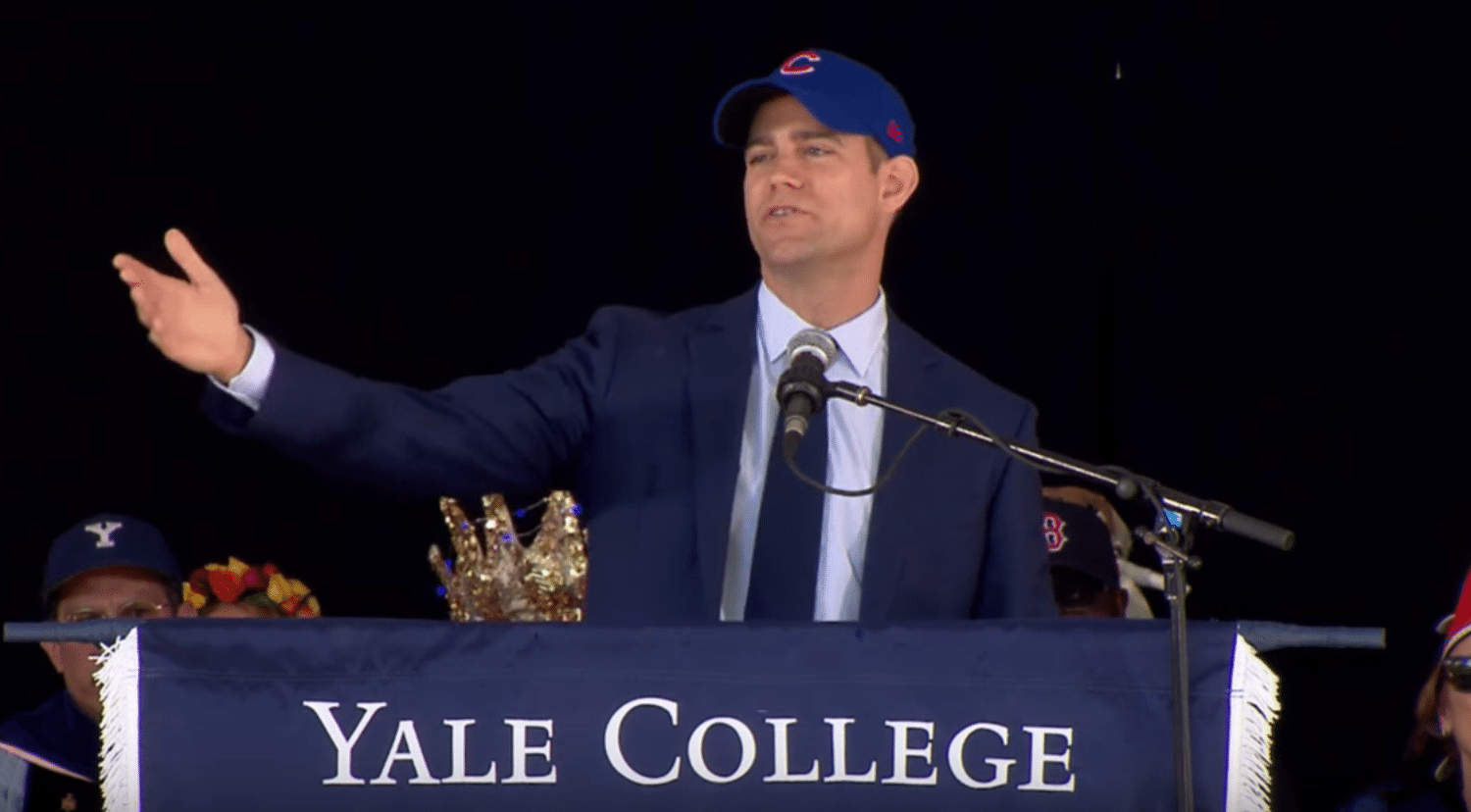
The Effects of Cubs Management’s Commitment to Young Players
“One of the great ironies of the digital information age is there is so much information out there, so much data, so many statistics, that it’s easy to attempt to precisely quantify a player’s contribution,” Theo Epstein told Yale graduates during their Class Day ceremonies. “But you can never really quantify a human being, can’t really quantify character, and that stuff does matter, especially in a group situation where players really do have an impact on one another…Objectivity is important, but you have to combine it with an understanding of the player as a human being.”
While this era of Cubs baseball will be marked by the influx of an unprecedented amount of talented young players, I’ll also remember how Theo and Co. approached the human side of the game. I don’t think it’s a coincidence that the team has fielded five first-round draft picks at once. Indeed, the Cubs mental skills initiative, which I wrote about in Spring Training, is a resource that has helped several Cubs successfully make adjustments and adapt to modern, data-rich baseball.
Epstein’s interpersonal relationships with young players, such as Anthony Rizzo and Kyle Schwarber, are additional examples of how the front office emphasizes human nature. A level of mutual trust has been established between the brass and player personnel. Believe it when the front office announces they will stand by their struggling core.
“You can read into the fact we made this [Quintana trade] without touching the major league team because despite the bad first half, which we’re accountable for, we believe in this group,” Theo Epstein explained to a group of reporters after trading Eloy Jimenez and Dylan Cease for Jose Quintana. In other words, he is explicitly saying that he intends to keep the young Cubs major league roster together despite the struggles.
Joe Maddon echoed this mindset and even went a step further while talking with Charlie Rose. The Cubs manager insisted that “enjoying the struggle” is necessary. Smirking as he adjusted his glasses, Maddon reflected on his days struggling to make it as both a player and a coach. But these were the experiences that molded the quirky, analytical manager after whom the Cubs so lustily chased. And this is the type of empathy that will also help mold the Cubs core.
Telling a story of a player’s struggles using a cocktail of peripherals and a plethora of baseball statistics is easy. I spend 99 percent of my time here on Cubs Insider doing just that. Sometimes it’s natural to get lost in those numbers, though. Time and time again I have thought a player wouldn’t be able to adapt because the odds were so low. Yet here we are talking about Kris Bryant’s historical contact rate improvement, Willson Contreras’ in-season adjustment, Jake Arrieta’s rise to prominence and current adaptation, Javy Baez’s career-altering approach change, Rizzo’s dramatic change as a Cubs minor leaguer, Heyward’s swing rehaul, and several other stories not mentioned; none of these were likely to happen from a statistical standpoint.
You’re witnessing a beautiful marriage between analytics and nurturing of players. Combined with the mental skills program, Cubs players are primed to identify the changes they need to make and, as a result, increase the likelihood of successfully adjusting to meet those goals.
